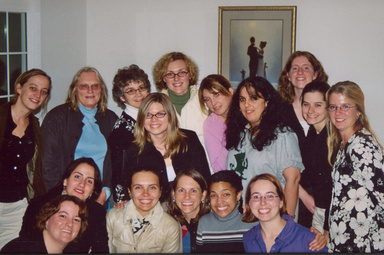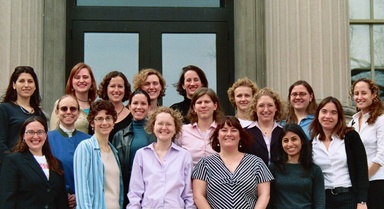By: Emily Delgado
Professor Kelly Kadera and associate professor Sara Mitchell, both in the Department of Political Science in the College of Liberal Arts and Sciences, want to empower and support women studying political science.
In two decades, they’ve hosted 13 workshops for female students pursuing political science, in a project called Journeys in World Politics. The workshops provide a weekend-long opportunity to connect with other professionals in the field, receive feedback on research and attend sessions on career advice, mentoring and work life balance. The pair hosted their first workshop in 2004.

The most recent workshop was held at the University of Wisconsin-Madison last year. Each workshop aims to unite junior and senior women who are in the international relations and political science fields.
“The workshops provide a support network for women who attend and provide participants with information about how gender may influence their careers and some resources and strategies they can leverage when dealing with these situations,” Kadera said.
Recently, the project received a $207,685 National Science Foundation grant that will allow Mitchell and Kadera to continue the effort for another four years. Kadera said for future workshops, they will be partnering with professors at the University of Wisconsin-Madison and the University of California San Diego.
The idea for the workshops stemmed from Mitchell and Kadera’s own experiences studying political science.
When Mitchell and Kadera received their PhDs, they saw very little representation and support for female political scientists, and few women entering the profession.

“We discussed ways to recruit and retain more women scholars in our field and to help mentor junior women in international relations to create a better support network and address some of the gendered issues that we had experienced ourselves,” Mitchell said.
Kadera and Mitchell have seen the workshops have positive effects on the careers of the women who participated. Mitchell said there has also been increased publications, grants, and promotions.
As the project enters a new phase and workshops get bigger, Kadera said the spirit is the same.
“We saw hosting as an act of duty, service, or love,” Kadera said. “That’s still true, but we quickly realized that Journeys also brought us immense benefits: learning new analytic skills from young scholars, becoming more networked ourselves, and discovering the inspiring stories of senior women who came before, alongside, and now after us.”